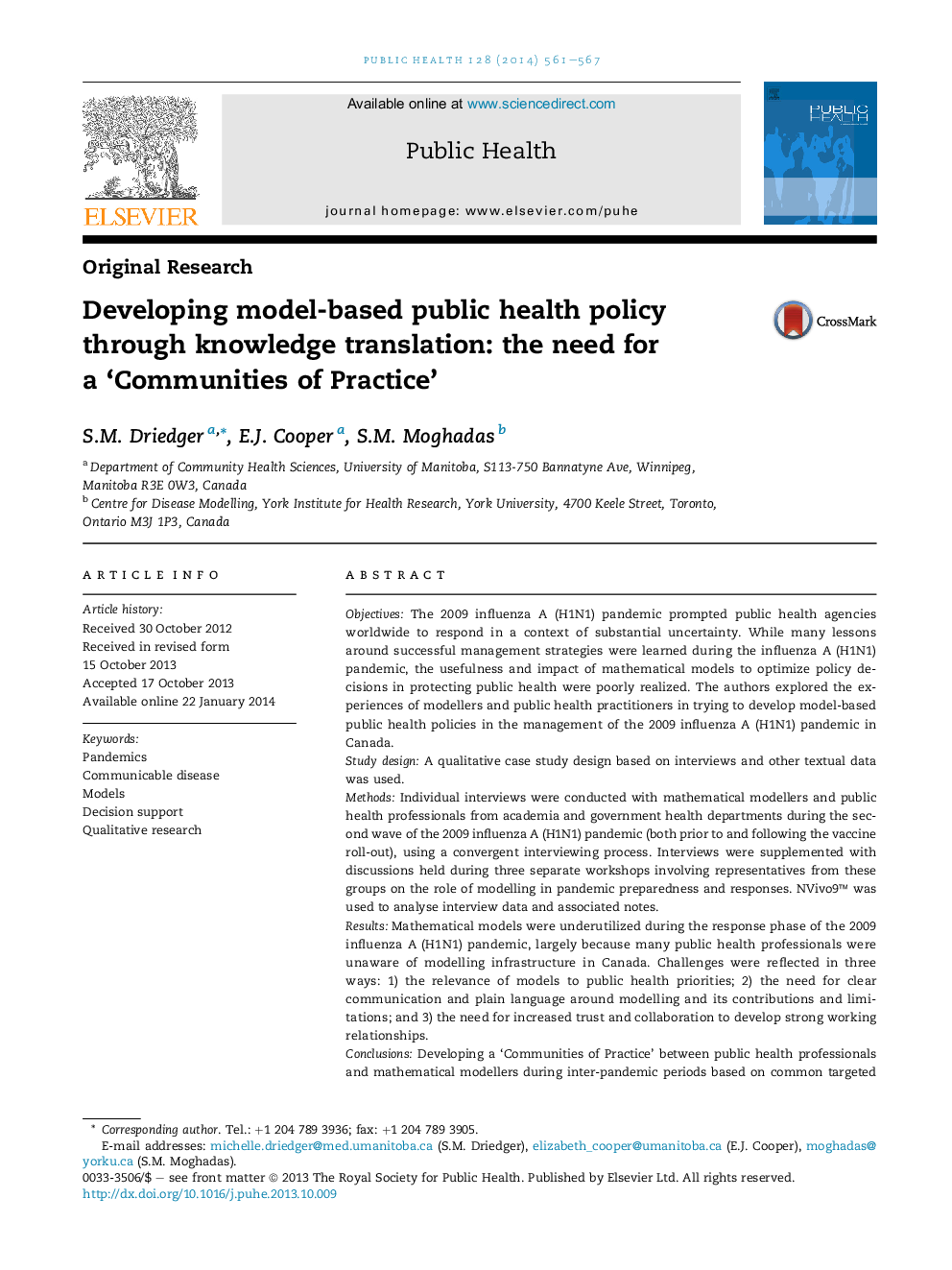| کد مقاله | کد نشریه | سال انتشار | مقاله انگلیسی | نسخه تمام متن |
|---|---|---|---|---|
| 1087426 | 951527 | 2014 | 7 صفحه PDF | دانلود رایگان |
ObjectivesThe 2009 influenza A (H1N1) pandemic prompted public health agencies worldwide to respond in a context of substantial uncertainty. While many lessons around successful management strategies were learned during the influenza A (H1N1) pandemic, the usefulness and impact of mathematical models to optimize policy decisions in protecting public health were poorly realized. The authors explored the experiences of modellers and public health practitioners in trying to develop model-based public health policies in the management of the 2009 influenza A (H1N1) pandemic in Canada.Study designA qualitative case study design based on interviews and other textual data was used.MethodsIndividual interviews were conducted with mathematical modellers and public health professionals from academia and government health departments during the second wave of the 2009 influenza A (H1N1) pandemic (both prior to and following the vaccine roll-out), using a convergent interviewing process. Interviews were supplemented with discussions held during three separate workshops involving representatives from these groups on the role of modelling in pandemic preparedness and responses. NVivo9™ was used to analyse interview data and associated notes.ResultsMathematical models were underutilized during the response phase of the 2009 influenza A (H1N1) pandemic, largely because many public health professionals were unaware of modelling infrastructure in Canada. Challenges were reflected in three ways: 1) the relevance of models to public health priorities; 2) the need for clear communication and plain language around modelling and its contributions and limitations; and 3) the need for increased trust and collaboration to develop strong working relationships.ConclusionsDeveloping a ‘Communities of Practice’ between public health professionals and mathematical modellers during inter-pandemic periods based on common targeted goals, using plain language, and where relationships between individuals and organizations are developed early, could be an effective strategy to assist the process of public health policy decision-making, particularly when characterized by high levels of uncertainty.
Journal: Public Health - Volume 128, Issue 6, June 2014, Pages 561–567
